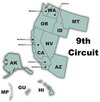Read more:
https://www.ammoland.com/2023/10/co...r-of-states-to-ban-common-arms/#ixzz8G9Cvhvnx
Under Creative Commons License:
Attribution
Follow us:
@Ammoland on Twitter |
Ammoland on Facebook
Coalition of Attorney Generals Argue for the Power of States to Ban Common Arms
Ammoland Inc. Posted on
October 13, 2023 by
Dean Weingarten
A coalition of Attorney Generals for sixteen states and the District of Columbia has filed an amicus brief to the Ninth Circuit appeal by the State of Hawaii, claiming state power to ban common arms is essential. On
August 7, 2023, a three-judge panel of the Ninth Circuit reached the unsurprising conclusion that knives, particularly the type of pocket knife called a “butterfly knife” or “balisong,” were bearable arms. Therefore, they were protected by the Second Amendment of the Constitution, and the State of Hawaii did not have the legal authority to ban them.
On September 20, 2023, the
State of Hawaii appealed to Teter v Lopez, claiming the three-judge panel of the Ninth Circuit mistakenly applied the law, asking for a new panel or a hearing en banc. The Ninth Circuit has historically been hostile to the Second Amendment and has reversed the decision of three-judge panels that uphold Second Amendment rights.
On September 22, the plaintiffs, Teter and Grell, were ordered to file a response to the appeal within 21 days.
On October 2, 2023, the coalition of 14 state Attorney Generals and the District of Columbia filed an amicus brief in support of the appeal. The arguments of the State of Hawaii, the 14 attorney generals, and the District of Columbia are remarkably similar. In sum, they are this:
- The Heller and Bruen decisions did not clarify that all bearable arms are preemptively covered by the Second Amendment (they carefully do not mention the unanimous Caetano decision, which says the opposite.)
- The Heller and Bruen decisions only protect arms shown to be in common use for self-defense.
- Common possession of arms is not the same as common use. The Second Amendment does not protect arms that are commonly possessed, only those arms that are commonly actually used for self-defense. The state can claim an arm is unusual and dangerous. It is the burden of the person challenging the law to prove an arm is commonly used for self-defense.
The three arguments turn the Heller, Caetano, and Bruen decisions on their head. The three decisions make clear all bearable arms fall under the Second Amendment. Caetano, which was a unanimous decision, clarifies this the best. From Caetano:
The Court has held that “the Second Amendment extends, prima facie, to all instruments that constitute bearable arms, even those that were not in existence at the time of the founding,” District of Columbia v. Heller, 554 U. S. 570, 582 (2008), and that this “Second Amendment right is fully applicable to the States,” McDonald v.Chicago, 561 U. S. 742, 750 (2010). In this case, the Supreme Judicial Court of Massachusetts upheld a Massachusetts law prohibiting the possession of stun guns after examining “whether a stun gun is the type of weapon contemplated by Congress in 1789 as being protected by the Second Amendment.” 470 Mass. 774, 777, 26 N. E. 3d 688, 691 (2015).
The proper test is to determine if the instrument is a bearable arm. Knives are bearable arms. Therefore, they are “prima facie” (accepted as correct until proven otherwise), protected by the Second Amendment. Once this is established, it is the burden of the state to prove these particular bearable arms are not in common use for lawful purposes. Lawful purposes are not limited merely to self-defense but include all lawful purposes.
The 14 attorney generals and the District of Columbia use the scare tactic of saying a backpack nuclear bomb is a bearable arm and thus would be presumptively protected by the Second Amendment.
It is a correct but misleading statement. Backpack nukes are far from “in common use.” They are uncommonly dangerous, as they could wipe out an entire city. Under Heller, Caetano, and Bruen, they can and are heavily regulated so as to make them exceedingly difficult to obtain.








